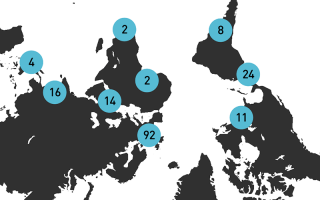I vividly remember the very first day I entered a lecture theatre at UCL to meet my BUDD classmates and attend our first session. I saw myself suddenly surrounded by 50 strangers; 50 people who came from all over the world and had lived thousands of experiences different from my own. Little did I know that by the end of the year, I would find myself again surrounded by the same 50 people - this time in Myanmar, and this time they were no longer strangers; they were friends, mentors and a universe of inspiration for the projects I wanted to pursue in my life.
Fundamentally, the BUDD programme is structured in such a way that theory and practice are always intertwined. The constant interplay between authors’ ideas and case studies provide you with numerous tools to develop your own positionality. This is an exciting challenge, because very soon after classes start, you realise how important it is to unlearn. The course makes you question everything you think you know so far (whatever your background) and gives you the tools to go back, unlearn, and start building yourself up as a practitioner in a world that is mostly urban, informal, unequal and unjust.
But more than the modules, which are excellent in quality and content, I consider the value of the BUDD programme lies in its people and in how it fosters the development of shared learning experiences. The process is collective, every step in the way is one you share with your classmates – whether it’s a debate about the meaning of space and how it is always bound to be political, or the development of a proposal for city-wide slum upgrading in a city you just started learning about a few months before. Having the opportunity to explore such an approach with people from so many different contexts was a unique and invaluable experience for me.
After I graduated from Architecture school in Bogotá, I had it clear that I wanted to learn more about informality; something to which I only received little exposure throughout my studies. I often found that the approach to learning architecture is very much formal as it focuses more on the end product rather than the process(es) which generate it. Even though most of the urban fabric in Colombian cities has been informally built, the processes behind these cities usually remain invisible in that formal tradition of practice.
Following my undergraduate studies I worked for a year on research and consultancy projects related to the formal provision of housing and the effects it had on creating Social Capital. I had the opportunity to see first-hand how housing programmes and projects worked in multiple contexts around the country. But none of the actors I worked with ever answered my questions about informality.
This made me realise I needed to learn more - to do a masters that focused on those lesser emphasised urban dynamics. After a thorough search, I found the perfect programme for it: the Master in Building and Urban Design in Development at the DPU.
The experience fundamentally changed the way I see myself as a practitioner and the way I approach urban design and architecture. Thanks to the tutors, I learned how theory can be a mode of practice and how there is a necessary link between academia and practice which I wanted to keep exploring.
During the last months of the masters I had the opportunity to travel to Myanmar to work alongside local and regional community-based organisations, such as the Asian Coalition for Housing Rights to develop strategies for city-wide slum upgrading. I also had the opportunity to write my dissertation as part of a fellowship with Save the Children, which led it to be published a few months after I finished the programme. I investigated how spaces of social integration were produced by refugee activism and self-reliance in Berlin after the 2015 refugee crisis. Alongside this, I had the opportunity through the DPU to do a part-time internship with ALNAP, supporting research on humanitarian action in cities. These opportunities that the DPU allowed me to explore gave more exposure to different understandings of space which have different implications on the quality of life of urban residents.
Since finishing the programme, I have been working in research with the Chair of Urban Design at Cardiff University. Standing in Academia, I have been also pursuing my own projects in research and practice.
Overall, my experience at the DPU helped me understand better my positionality as a practitioner and it gave me the tools to further explore and work towards my own professional development. At the point of writing this post, I have only started to realise how many doors this experience has opened for me, and so far the process of discovery has been exciting.
 Close
Close


